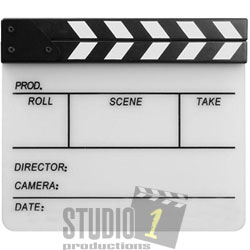This is a very simple question:
This is my understanding of the sound recording process. Let me know if I'm wrong anywhere.
-When filming, there is a person recording sound to a dedicated "device". Unless the camera is recording the sound. In either case external mics can(will) be used.
-This person records the sound to a device/camera. They use different mics to get the sound to the device/camera.
- When the filming is done, the sound is then synched to the film if the sound was recorded to a separate device.
Question:
I'm a bit shaky on the separate audio capture situation. I'm assuming a situation as follows: A person standing with a mic...the mic connected via cable to a recording device.
Also, would the same person who recorded the sound also edit the sound?
Thanks!!
This is my understanding of the sound recording process. Let me know if I'm wrong anywhere.
-When filming, there is a person recording sound to a dedicated "device". Unless the camera is recording the sound. In either case external mics can(will) be used.
-This person records the sound to a device/camera. They use different mics to get the sound to the device/camera.
- When the filming is done, the sound is then synched to the film if the sound was recorded to a separate device.
Question:
I'm a bit shaky on the separate audio capture situation. I'm assuming a situation as follows: A person standing with a mic...the mic connected via cable to a recording device.
Also, would the same person who recorded the sound also edit the sound?
Thanks!!



 ) to the one the PSM on the current shoot I'm on uses (though he doesn't use Beats headphones
) to the one the PSM on the current shoot I'm on uses (though he doesn't use Beats headphones 

